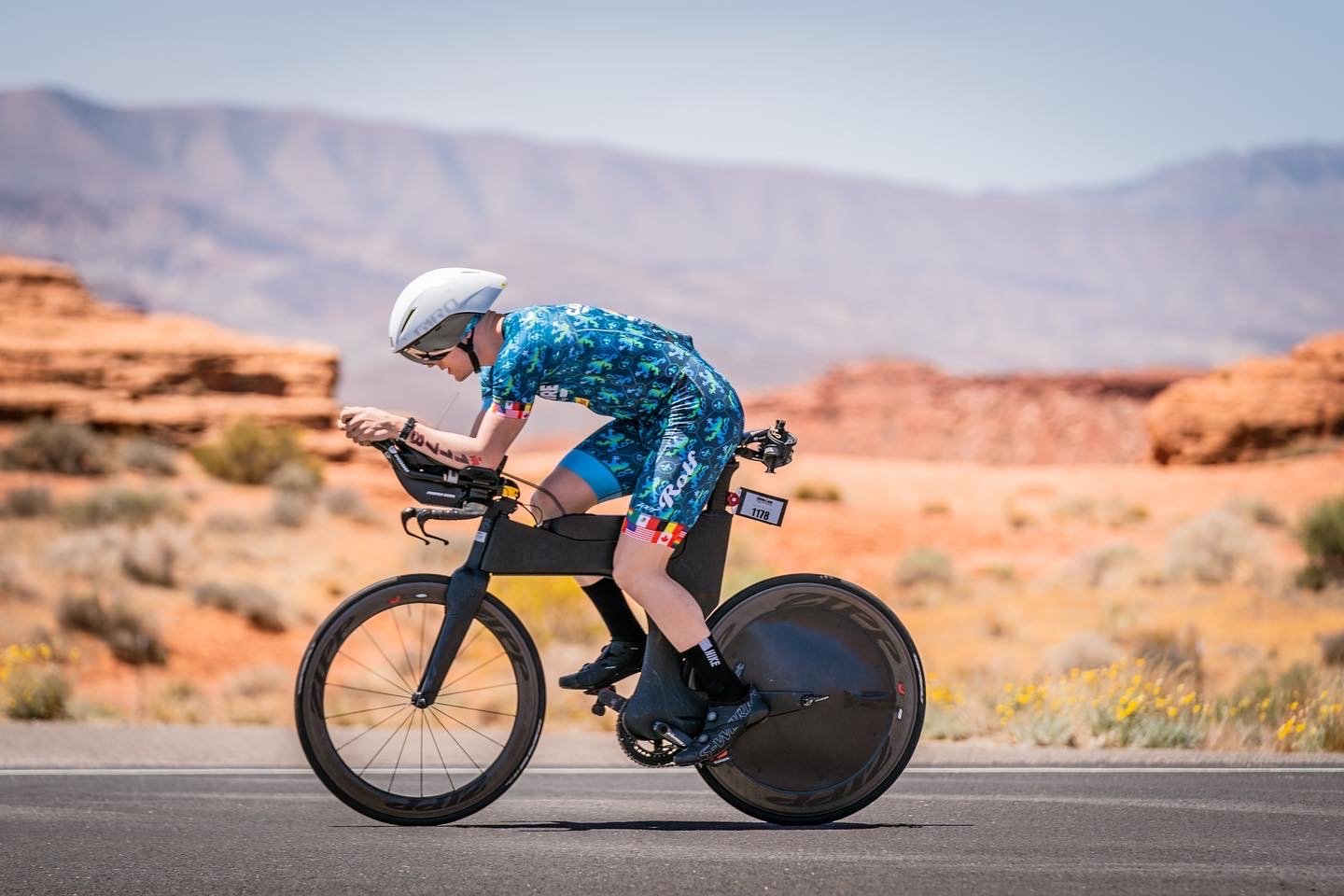Sharpening instead of Tapering
A good sharpening period leaves you feeling, well, sharp!
Suggestions for nailing your competition period
By Chris Boudreaux
“Taper time! Time to put the legs up and relax till race day!”
“The hay is in the barn!”
“Last long run done! Time to chill…#tapertime”
How often do you see (or say) something along those lines in the last few weeks before a big race, like an Ironman or a marathon? Pretty much all the time, especially if you’re on Twitter and follow a bunch of other distance athletes. And it’s not that they are completely wrong. Of course, if you’ve been doing a big training block leading into a major event, you will reduce the training load. And there will be a focus on rest and recovery and making sure you’re 100% on race day. But there’s a key word here many of us miss: FOCUS.
There are a ton of articles and opinions on an ideal taper leading into events, but managing workload is an intensely personal aspect of training. Over the years we’ve seen tons of different ways to approach a race as far as the degree of workout reduction, specific workouts, specific rest days, that have all worked for the athletes and coaches that deploy them. But learning what works for YOU is something you and your coach need to figure out together. We’re not saying that there isn’t good, bad, and great ways to taper, but we think the mental focus during that time is the most important.
When you think of a “taper," we think of downtime, less work, more rest…basically a little off-season. But what happens when you take your off-season break? You don’t lose a ton of fitness over a few weeks, but try to go run a great track workout in the middle of November or December a month after your last race…Not fun, right? There’s some physical sluggishness, but it’s overwhelmingly mental. Your body and your mind are just not ready to work like that. You’ve told your body that it’s resting, and guess what? That’s exactly what it wants to do. So when we do the same thing in the last two to three weeks before our most important race of the year, why are we surprised when we feel flat and sluggish and “off” on race day?
There should be SOME of this during your sharpening period, but not ALL of your sharpening period
It’s not that exact of a science to be already to go for a 8-17 hour event. You just don’t need to be that perfect. You need sharpness, but not as much physical sharpness as if you were running the 100 meters (or even the 5-10k). You need to be healthy, engaged, and be ready to work. Think “sharpening” instead “tapering.” This may take some time. as the triathlon world, in particular, seems to be obsessed with the term taper (it makes several of us think of candles, though, or those long thingimajigs one uses to light hard-to-reach candles).
When you think about sharpening over the last few weeks, we’d urge you to think about sharpening your focus: more attention to detail, more time spent preparing for the event, more preparation of your mind. While that increased mental focus includes reducing your training, it doesn’t include less preparation or attention to detail than what you’ve done over the previous eight-to-twelve week block just completed. You should get dressed the same, warmup the same, eat properly, everything you’d do for that huge ride or run a few weeks back. Total focus and concentration on the task at hand. Sharp. Focused. Ready to give 100%. So even your 20 minute run w/30 second pickups has the same level of focus and attention that the 2 hour run with Ironman intervals did.
When you sharpen, everything you do over those last few days or weeks prepares your mind and body for the upcoming event. When you feel like you’re resting and relaxing for 2 weeks, then asking your mind and body to be “on” for a huge event, that’s a recipe for disaster. Use your sharpening period to get you fully prepared, and then “taper” when it’s time for your off-season, the real time to relax and check out.
Five Non-Workout Activities to Help You Sharpen Into a Race
Write out your race-day nutrition and talk with your coach about it, being ready for adjustments to be made.
Move the course maps onto your bike computer or wrist-based GPS device—visualize yourself having a great event on those very roads.
Practice your race day nutrition in EVERY workout, even if it’s just a 25-minute run or 60-minute bike. 25 minutes is enough time for 2-3 energy chews, and in 60 minutes on your bike you should get through at least a bottle of sports drink. Does your body “need it?” No, but training your gut and your mind are crucial for good performances.
Put your training sessions at the rough time of day you’ll do them in the race and examine how your body feels.
Do 5-10 minutes of visualizing the race you want to have every. single. day. If you meditate, this is a great use of your daily meditation period. If you’re not meditating…then start. It can really help endurance athletes.


